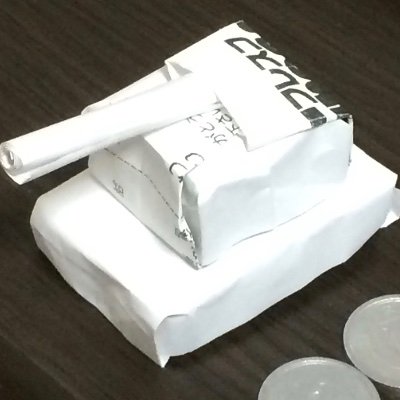結果
| 問題 | No.8046 yukicoderの過去問 |
| コンテスト | |
| ユーザー |
 cureskol cureskol
|
| 提出日時 | 2022-12-21 14:49:59 |
| 言語 | C++17 (gcc 15.2.0 + boost 1.89.0) |
| 結果 |
TLE
|
| 実行時間 | - |
| コード長 | 5,644 bytes |
| 記録 | |
| コンパイル時間 | 2,838 ms |
| コンパイル使用メモリ | 221,248 KB |
| 最終ジャッジ日時 | 2025-02-09 18:01:18 |
|
ジャッジサーバーID (参考情報) |
judge2 / judge4 |
(要ログイン)
| ファイルパターン | 結果 |
|---|---|
| other | AC * 8 TLE * 1 |
ソースコード
#pragma region template
#pragma GCC optimize("Ofast")
#include <bits/stdc++.h>
using namespace std;
using ll=long long;
using ld=long double;
using vi=vector<int>;
using vll=vector<ll>;
using pi=pair<int,int>;
using pll=pair<ll,ll>;
#define overload2(a,b,c,...) c
#define overload3(a,b,c,d,...) d
#define overload4(a,b,c,d,e,...) e
#define overload5(a,b,c,d,e,f,...) f
#define TYPE1(T) template<typename T>
#define TYPE2(T,U) template<typename T,typename U>
#define TYPE(...) overload2(__VA_ARGS__,TYPE2,TYPE1)(__VA_ARGS__)
#define TYPES1(T) template<typename... T>
#define TYPES2(H,T) template<typename H,typename... T>
#define TYPES(...) overload2(__VA_ARGS__,TYPES2,TYPES1)(__VA_ARGS__)
#define REP4(i,s,n,d) for(int i=(s);i<(n);i+=(d))
#define REP3(i,s,n) REP4(i,s,n,1)
#define REP2(i,n) REP3(i,0,n)
#define REP1(n) REP2(tomato,n)
#define REP(...) overload4(__VA_ARGS__,REP4,REP3,REP2,REP1)(__VA_ARGS__)
#define RREP4(i,n,s,d) for(int i=(n)-1;i>=s;i-=d)
#define RREP3(i,n,s) RREP4(i,n,s,1)
#define RREP2(i,n) RREP3(i,n,0)
#define RREP1(n) RREP2(tomato,n)
#define RREP(...) overload4(__VA_ARGS__,RREP4,RREP3,RREP2,RREP1)(__VA_ARGS__)
#define FOR4(a,b,c,d,v) for(auto [a,b,c,d]:v)
#define FOR3(a,b,c,v) for(auto [a,b,c]:v)
#define FOR2(a,b,v) for(auto [a,b]:v)
#define FOR1(a,v) for(auto a:v)
#define FOR(...) overload5(__VA_ARGS__,FOR4,FOR3,FOR2,FOR1)(__VA_ARGS__)
#define AFOR4(a,b,c,d,v) for(auto&[a,b,c,d]:v)
#define AFOR3(a,b,c,v) for(auto&[a,b,c]:v)
#define AFOR2(a,b,v) for(auto&[a,b]:v)
#define AFOR1(a,v) for(auto&a:v)
#define AFOR(...) overload5(__VA_ARGS__,AFOR4,AFOR3,AFOR2,AFOR1)(__VA_ARGS__)
#define CFOR4(a,b,c,d,v) for(const auto&[a,b,c,d]:v)
#define CFOR3(a,b,c,v) for(const auto&[a,b,c]:v)
#define CFOR2(a,b,v) for(const auto&[a,b]:v)
#define CFOR1(a,v) for(const auto&a:v)
#define CFOR(...) overload5(__VA_ARGS__,CFOR4,CFOR3,CFOR2,CFOR1)(__VA_ARGS__)
#define ALL(v) v.begin(),v.end()
#define RALL(v) v.rbegin(),v.rend()
#define SORT(v) sort(ALL(v))
#define RSORT(v) sort(RALL(v))
#define REVERSE(v) reverse(ALL(v))
#define UNIQUE(v) SORT(v),v.erase(unique(ALL(v)),v.end())
TYPES(T) void input(T&... a){ (cin>>...>>a); }
#define DECLARE(T,...) T __VA_ARGS__;input(__VA_ARGS__);
#define INT(...) DECLARE(int,__VA_ARGS__)
#define STR(...) DECLARE(string,__VA_ARGS__)
#define LL(...) DECLARE(long long,__VA_ARGS__)
#define CHR(...) DECLARE(char,__VA_ARGS__)
#define DBL(...) DECLARE(double,__VA_ARGS__)
#define VI(n,v) vi v(n);cin>>v;
#define VLL(n,v) vll v(n);cin>>v;
TYPE(T) istream&operator>>(istream&is,vector<T>&v){
for(auto&a:v)cin>>a;
return is;
}
TYPE(T) ostream&operator<<(ostream&os,const vector<T>&v){
if(&os==&cerr)os<<"[";
REP(i,v.size()){
os<<v[i];
if(i+1<v.size())os<<(&os==&cerr?",":" ");
}
if(&os==&cerr)os<<"]";
return os;
}
TYPE(T,S) istream&operator>>(istream&is,pair<T,S>&p){
cin>>p.first>>p.second;
return is;
}
#ifdef __LOCAL
#include <debug>
#else
#define debug(...) void(0)
#endif
void print(){ cout << '\n'; }
TYPES(T,Ts) void print(const T& a,const Ts&... b){
cout<<a;
(cout<<...<<(cout<< ' ',b));
cout << '\n';
}
TYPE(T) using pq=priority_queue<T>;
TYPE(T) using pqg=priority_queue<T,vector<T>,greater<T>>;
TYPE(T) T pick(queue<T>& que){assert(que.size()); T a=que.front();que.pop();return a;}
TYPE(T) T pick(pq<T>& que){assert(que.size()); T a=que.top();que.pop();return a;}
TYPE(T) T pick(pqg<T>& que){assert(que.size()); T a=que.top();que.pop();return a;}
TYPE(T) T pick(stack<T>& sta){assert(sta.size()); T a=sta.top();sta.pop();return a;}
string YES(bool f=true){return (f?"YES":"NO");}
string Yes(bool f=true){return (f?"Yes":"No");}
string yes(bool f=true){return (f?"yes":"no");}
constexpr int INF=1e9+7;
constexpr ll LINF=ll(1e18)+7;
constexpr ld EPS=1e-10;
vi iota(int n){vi a(n);iota(ALL(a),0);return a;}
TYPE(T) vector<pair<T,int>> query_sort(const vector<T>&v){
vector<pair<T,int>> res(v.size());
REP(i,v.size())res[i]={v[i],i};
SORT(res);
return res;
}
TYPE(T) T rev(T a){ REVERSE(a);return a; }
TYPE(T) void fin(T a){cout<<a<<endl;exit(0);}
TYPE(T) bool chmax(T &a,T b){return (a<b&&(a=b,true));}
TYPE(T) bool chmin(T &a,T b){return (a>b&&(a=b,true));}
TYPES(T,Ns) auto make_vector(T x,int n,Ns ...ns){
if constexpr(sizeof...(ns)==0)return vector<T>(n,x);
else return vector(n,make_vector<T>(x,ns...));
}
bool in(const ll S,const int a){return (S>>a)&1;}
int popcount(const ll S){return __builtin_popcountll(S);}
int digit(char c){ return (c>='0' and c<='9' ? c-'0' : -1);}
#pragma endregion template
#include <atcoder/modint>
using namespace atcoder;
using mint=modint1000000007;
ostream& operator<<(ostream &os,mint a){os<<a.val();return os;}
istream& operator>>(istream &is,mint &a){
long long b;is>>b;a=b;
return is;
}
template<typename T>
struct CumulativeSum{
using U=conditional_t< is_same_v<T,int>,long long,T >;
vector<U> A;
CumulativeSum():A(1,0){}
CumulativeSum(const vector<T>&v):A(v.size()+1,0){
for(int i=0;i<v.size();i++)A[i+1]=A[i]+v[i];
}
void add(const T&a){ A.push_back(A.back()+a); }
U sum(int l,int r){ return A[r]-A[l]; }
U sum(){ return A.back(); }
};
int main(){
ios::sync_with_stdio(false);
cin.tie(nullptr);
INT(k);
INT(n);
vector<pair<int,int>> v;
INT(a);v.emplace_back(a,a);
REP(n-1){
INT(b);
if(v.back().second+1 == b)v.back().second++;
else v.emplace_back(b,b);
}
CumulativeSum C(vector<mint>{1});
C.A.reserve(k+1);
for(int i=1;i<=k;i++){
mint sum=0;
CFOR(l,r,v){
int L=max(0,i-r);
int R=i-l+1;
if(R<=0)break;
sum += C.sum(L,R);
}
C.add(sum);
}
cout<<C.sum(k,k+1)<<endl;
}
